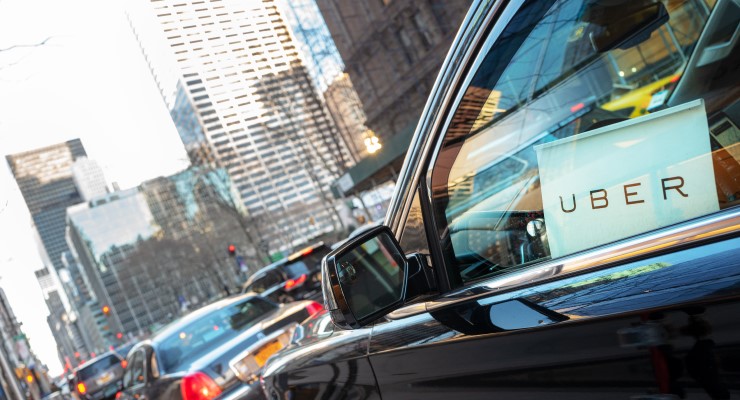
Uber’s future in London is under question for the second time in recent years after the city’s transport regulator deemed it to not be “fit and proper” and stripped the ridesharing company of its licence.
Transport for London (TfL) found that it was easy for drivers to deceive Uber’s registration system. As a result, customers have had over 14,000 trips with unregistered drivers who faked their identity.
It isn’t the first time that Uber has faced legal troubles. The tech giant has spent years in an existential crisis trying to work out — and convince courtrooms and customers — exactly what it is.
A transport service or a tech company?
In the United States, Uber is reportedly not allowing some drivers to work until they sign an updated technology services agreement acknowledging and agreeing that the “company is a technology services provider that does not provide transportation services”.
Uber has resisted being classified as a transportation company for years to avoid being subjected to various national transportation regulations.
But in 2017, a battle between Uber and the EU taxi associations, the European Court of Justice ruled that Uber was a transportation firm and therefore must comply with the region’s fragmented transportation laws and unfair-competition laws.
In some Australian states Uber has had to comply with the same requirements demanded of taxi drivers. Victorian state regulations, for example, require rideshare drivers to hold a special type of licence called a driver accreditation, issued by the former Taxi Services Commission (TSC) and register their vehicle as a commercial passenger vehicle.
Employees or contractors?
The other main debate taking place across the United States and Australia is whether Uber drivers are employees or contractors.
It’s more than just a job title: the classification determines whether Uber is obligated to pay its drivers minimum wage, annual leave, sick leave and other employee benefits.
The Fair Work Ombudsman found in June this year that its drivers are independent contractors, not employees, as part of an ongoing investigation into whether the platform had been representing drivers as, essentially, franchisees.
The decision turned on the fact that Uber drivers “have control over whether, when and for how long they perform work, on any given day or on any given week”.
But the jury is still out on whether this is enough to determine drivers’ employment status.
The UK’s second most senior judge, Sir Terence Etherton, along with Lord Justice Bean, upheld a landmark employment tribunal decision that Uber drivers should be classed as workers with access to minimum wage and paid holidays.
They pointed out a fundamental tension between Uber’s claims to be “operating a private hire vehicle service in London” on the one hand, and “merely an affiliate of a Dutch-registered company which licenses tens of thousand of proprietors of small business to use its software” on the other.
Meanwhile, California lawmakers are circumventing the courts when it comes to deciding rideshare drivers’ rights. Ridesharing companies like Uber and Lyft are battling a recently-passed law in the state called Assembly Bill 5, which could force gig-sharing companies to reclassify independent contractors as employees.
Ridesharing and meal delivery app companies are trying to take the legislation to California voters, recently unveiling a $90 million plan to get the bill on the November 2020 voter ballot.
It’s a small price to pay given the devastating impact this kind of law could have on Uber’s future: according to Inc, Barclays analysts have estimated that with higher wages, social security and health care, tax and superannuation, the reclassification could cost each company around $290 million.








I like the Uber service, but I’m happy to pay more for it to be properly regulated and its drivers properly paid. There’s an environmental danger in it being too cheap anyway – if it replaces cars on the road, fine, but if it replaces public transport rides that’s adding to congestion and emissions.
On the one hand the many issues with Uber (and others) illustrate the poverty of the Union movement and its inability to envision work in and of the future.
It was the redoubtable Dr Johnson who quipped that if the poor were ever to realise their circumstances the leisure class would be liquidated. Johnson was implying that the leisured class were here to stay because the poor could never marshal themselves. Flicking through recent previous issues of Crikey (I haven’t been around since the election) there has been some rather pedestrian notes written on the topic.
I wonder if there is a single individual in Parliament who could discuss the prospect of work circa 2050 with anything resembling coherence. The advent of robots undertaking clerical tasks (currently occurring) or driving cars has not been considered much less planed. As the workforce becomes more IT savy, along with packet-switched video, the need to arrive at the office will be very much diminished; the implications being that we can work from home in either our board-shorts in summer or our pyjamas in winter.
The Parliament is big on topics such as surveillance or other apparent bogies comprising the E7 but the function of work in the 21st century seems to be beyond the current miss-mash of former lawyers and real estate agents.